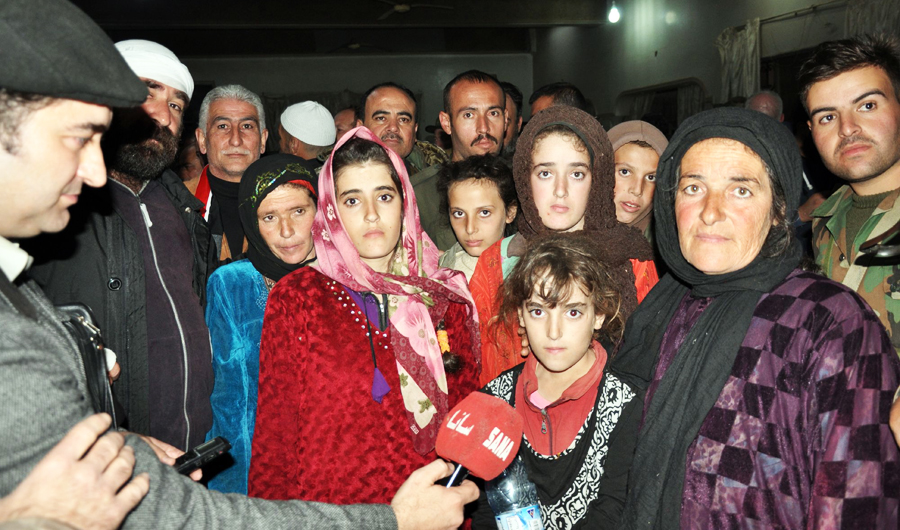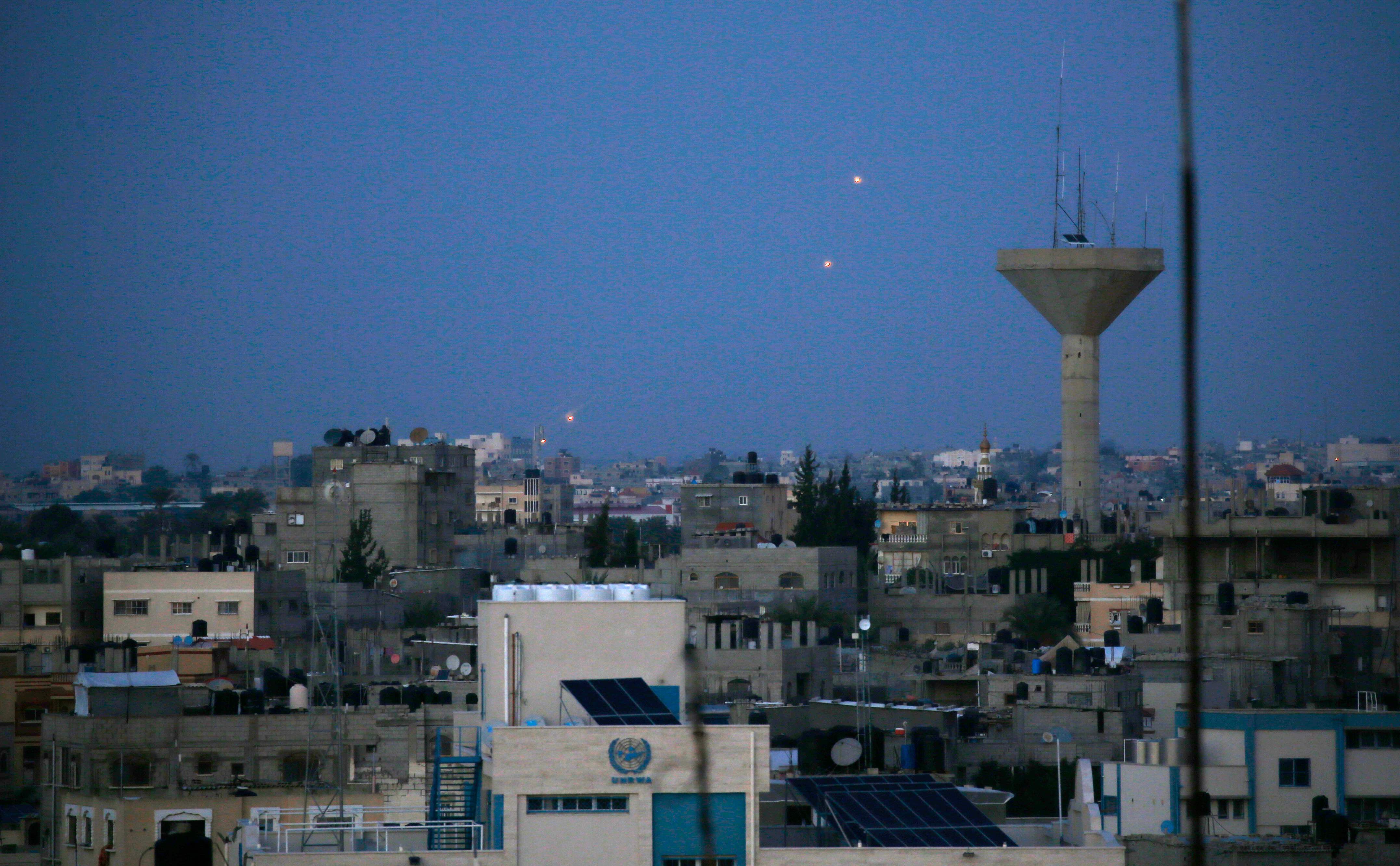Lebanese MP: Sweida hostages were freed by Russia
BEIRUT: Lebanese MP and member of the Democratic Gathering party Wael Abou Faour told Arab News that “the liberation of the women abducted by Daesh on Nov. 8 was accomplished by Russian special forces. They were responsible for the monitoring, reconnaissance, timing and execution of the operation. The Syrian army was not the one to do so as the regime had claimed. However, some Syrian elements that directly follow the Russian leadership took part in the operation.”
“What happened was a military liberation operation. No deal was made with the Syrian regime or the abductors,” he added.
Faour had accompanied the head of the Democratic Gathering party, Taymour Jumblatt, on a trip to Moscow where they met with the Russian Deputy Foreign Minister Mikhail Bogdanov, in the presence of the official in charge of the issues of Lebanon, Syria and Palestine Andrei Banov. “The Russians informed us that the hostages will be released very soon at 10 a.m. Moscow time, while the Syrian announcement of their liberation came at 3 in the afternoon,” he noted.
Daesh had kidnapped 36 women and children from the Syrian southern province of Sweida during an attack that killed more than 250 people, according to the Syrian Observatory for Human Rights.
“The Syrian regime was responsible for the kidnapping in the first place, so it is not normal for it to be behind the liberation. The regime wanted to use what happened to blackmail Syrian Druze into returning to the military service. There are hundred of thousands of Druze in Syria and 53,000 of them refused to join the military.”
“Since the beginning of the kidnapping crisis, the Russian leadership informed us that it is working directly on the ground and running the negotiations. Through announcing its responsibility for the liberation of the hostages, the Syrian regime is trying to look as if it is protecting the Druze and acquit itself from letting Daesh into the Druze areas,” Faour pointed out.
“The situation in Sweida is relatively acceptable. Some arrangements are being made under the direct guidance of the Russian leadership. Taymour Jumblatt is taking part in this matter in a way that preserves the security of Sweida residents and their relations with the rest of the Syrian people and prevents their usage in any future conspiracies carried out by the regime.
“These recent events showed that Taymour Jumblatt’s confidence in the Russians was in place especially after the liberation operation. Further discussions about future arrangements related to the Druze’s situation in Syria are under way. A suggestion proposed that the Druze wanted for military service would join the fifth legion led directly by Russia, which is receiving positive feedback among Druze,” he said.
“The relation between the Progressive Socialist Party led by Walid Jumblatt and the Russian Federation is historic. Russians preserve their relations with their historic allies and remember the great role of Kamal Jumblatt, who was awarded with the Order of Lenin among very few figures in the world. They also cherish the common friendship and struggle they share with Walid Jumblatt and want to consolidate the relation with his son Taymour.
“The relation with Russia does not lead to a relation with President Bashar Assad. That relation will only come back to life when there is a democratic regime in Syria,” Faour stressed.
“Russia is working on a gradual political solution in Syria. There is no turning away from the constitutional committee. There are discussions related to the representatives of the civil society that constitute a third of the committee, which balances it in some way.
“The meeting held with Russian officials also discussed Lebanese issues. Moscow showed a great interest in the internal situation and it fears that the current developments, international disputes in particular, may destabilize its stability.
“They are very concerned with the forming of the Lebanese government headed by Saad Hariri, and Bogdanov expressed Russia’s readiness to take any initiative to help Lebanon overcome the government crisis,” he added.

2 killed children among liberated Syrian hostages held by DaeshSyria army frees 19 Druze hostages from Daesh





